Meaning Of After Us The Deluge
During the school year, I sit each afternoon amid a private school parking lot filled with soccer moms wielding big-butt SUVs and over-sized luxury vehicles, each jockeying for the best and the front parking spaces, in a scramble to retrieve their little darlings.
Aside from the comedy of pretensions playing out before me, this is my most special time of the day. While I’m ostensibly waiting for our own princess to return to her kingdom, for me, it’s the quiet reading and thinking time. This often is not something possible in our busy and sometimes vociferous home.
As both a collector of antique books and a history enthusiast, I’ve been reading a number of books published before 1894 about the French Revolution. As a sourpuss former Washingtonian, at this stage of my life, I don’t give politics and the sorry state of affairs we are in, much thought.
I don’t have to pay attention-- because my husband lives and breathes every moment of each never-ending crisis at full volume and gives me his take on it, in frequent, but lengthy bursts of one-sided conversation. His is a monologue, not open to debate or comment, or even seeking agreement. He just wants to be heard, like everyone else.
No, as much of devoted of a hubber that I might be, you won’t find me on hanging out in the more controversial forums in politics or religion. Nothing wrong with any of you doing so, it’s just not for me. I never was one to spit in the wind, expecting to change the basic laws of human nature, expecting to change another’s mind.
So, I find myself sitting here tonight, wondering what I am doing here, stepping out of my comfort zone and back to my days of working on Capitol Hill – sharing the thoughts that are more questions than answers – like the lobbyist I once was.
Questions Born Out of the French Revolution
Let's Not Lose Our Heads
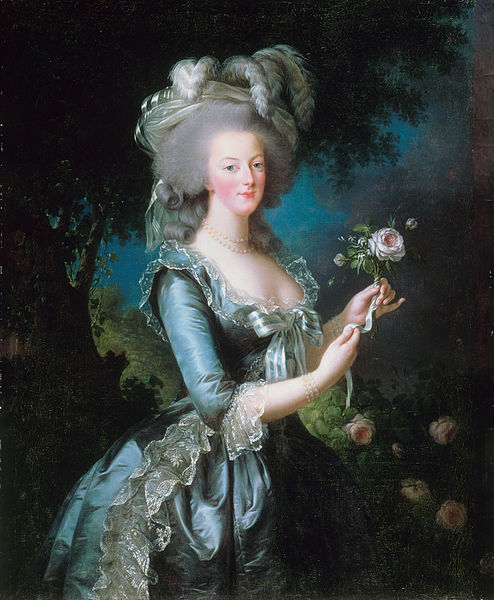
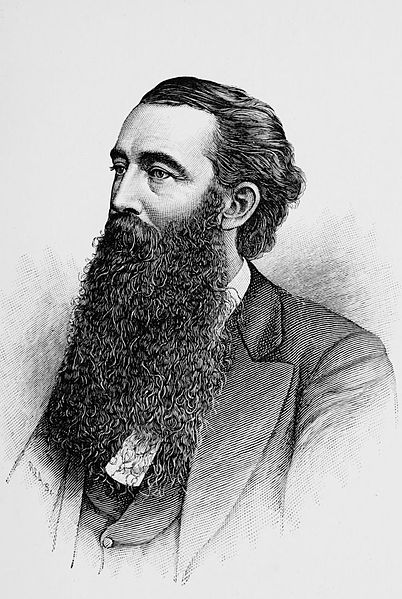
John Clarke Ridpath
John Clarke Ridpath (born in 1840) was an educator, critical thinker, author, professor of literature and history and later administrator at Depauw University. In retirement, he wrote full time and published a large number of books.
His books are very interesting read and can be found online if you have the patience and don't own them. He was a product of his time and the attitudes of his time, so everything he presents historically is going to be politically correct, or necessarily right today.
From Ridpath's History of the World - Vol. 5
Among three different authors recording history before in the books I'm reading, one stands out the most. I always try to read history with an eye out for "how does this apply or compare to today" questions.
The events that led up to the French Revolution are, of course, well documented. However, in John Clarke Ridpath's many volumes, glimmers of something you don't expect in a serious recount of history, are both humor and sarcasm.
He opened his discussion about the time period by pointing out that there were one hundred and thirty thousand clergy (monks, curates, vicars, and nuns), stating:
". . . . who enjoyed themselves in the work of saving France from her sins. But they did not begin with themselves."
Moving on, he pointed out that at the top of the financial food chain the thirty thousand noble families (numbering one hundred and forty thousand people in total) each owned:
" . . . .one square league of territory and for each one thousand of the inhabitants there was one castle, one noble family. France was not only saved, but she was ennobled."
This amounted to one fifth of all of France's land being owned by the clergy, another one-fifth by the nobility, and the rest to the king. So, three-fifths of France's land was not available to the common people -- whose very existence, depended upon them supporting and laboring solely for the comfort and wealth of those who owned that three-fifths of land.
I found myself amused at Ridpath's statement:
"There was one king in France. It required something for his support. He was not a day laborer."
Only the Best for the Best
The subject of "entitlement" is certainly one that applies to today. I only had to look up from my reading throne on four wheels to see several examples of privilege. Sometimes, particularly the false claims to entitlement rear their unflattering little heads among children who are lucky enough to attend private schools, like a stain that prevails an ugly truth about having too much too soon that you personally didn't earn. Not all princesses and princes wear the success of their parents endeavors well.
John Clarke Ridpath seemed to get this, as he continued. He talked about twenty-six million people living in France at the time. They were numerous, but somewhat unimportant. Their value was summed up like this:
"They supported the nobility and the king, and furnished the clergy with material."
This is where what I was reading started nagging at me and started me on a path of questioning how still another example of past history, might be a red flag for those of us living and breathing the history of today.
Ridpath asserted that:
"Not only were three-fifths of the real estate of the kingdom in the hands of the privileged orders, but these three-fifths were far the richest. It was the best land in France."
That last statement started me on a path in thinking about who really owns America? More importantly who owns the best land in the United States?
Well, I wasn't going to solve those two questions out in the school parking lot. So, I continued to read.
About How the Government Was Everything
Who Are the Landowners in America?
Well, that's a difficult question to answer. Having been a research analyst, the official figures are mired with fuzzy math and vague answers.
I wasn't even surprised to find that a lot of information that should be public and contained in several central sources -- is scattered, non-existent, or cloaked in secrecy.
Depending upon which source you look at, the biggest landowner in the United States is the Federal Government. Most would be shocked to know exactly how much.
By their own accounting system, the U.S. General Services Administration admitted back in 2004 the Federal land holdings. Since then these federal landownership has increased, sometimes in some states, dramatically.
Here are some of the breakdowns, just of some Western states:
- Alaska -- 66.7% federal government owned
- Arizona -- 50.2% federal government owned
- California -- 46.9% federal government owned
- Colorado -- 36.9% federal government owned
- Idaho -- 66.4% federal government owned
- Montana -- 31.3% federal government owned
- New Mexico -- 41.8% federal government owned
- Nevada -- 91.9% federal government owned
- Oregon -- 53.1% federal government owned
- Utah -- 66,5% federal government owned
- Washington -- 43.5% government owned
- Wyoming -- 50.7% federal government owned
Now, considering that only 2.4% of federal land is used for military purposes. It also doesn't count the 2.3% of lands it holds in "trust" for native Americans -- as the question remains of an exact accounting of just how much land does the federal government actually own of this country.
Their figures and reports minimize the amount, to only admitting that they own three in every ten acres. Mind you, the reports do not include the land that individual states own, nor does it include the land counties, cities, or towns own.
France in the 18th century is a complicated history and nearly impossible to do justice without writing several books. The troubles began all before the reign of King Louis XIV, but basically it was all about government. Indeed, the author stated:
"The government was everything."
Well, I could believe it, if you turned on the television or looked online today at the "news" it certainly seems like the government is everything, even today. No doubt, the government was successful in brainwashing the people of the 18th century into being that "this is the way it's going to be."
Ridpath's belief was that historically France's theory was:
"It is the duty-- the business-- of the state to teach men what things to do, and of the Church to teach them what things to believe. As for man, it is his business to be governed. That is--and was--the object of his creation."
That whole line of historical observation had me off on another tangent, wondering if this still might be the "unspoken rule" of those who really own this country?
Well, I don't know how much of that applies, because according to History of the World:
".... he must receive with unquestioning simplicity and obedience whatever is doled out to him by the noble and the priest to whom his management, his interests, his destiny in this world are intrusted."
OK. As a baby boomer, living in the supposedly "land of the free" -- Are we dangerously treading new/old waters that will someday spell out that we must blindly accept in simplicity and obedience 'whatever' is doled out to us?
The only reason I ask myself that is because sitting at the VA Medical Center waiting for my appointment the day before, an old veteran of my father's generation, looked me squarely in the eyes, and without any prelude in conversation said to me:
"Is this what I deserve for standing up for my country? Going to war and I did the right thing? Now I wait for hours to see a doctor, and go home to a tin box trailer -- because I can no longer afford my home? Who can live on $800 a month social security?"
I didn't have an answer for him or to my own questions, then or now.
So, bringing my mind back to what I was reading, I continued to re-discover how those in power in France, persisted in mounting up more and more debt, waging costly and expensive wars, and living life-styles of extravagant entitlement. Meanwhile, enormous financial and tax burdens were heaped upon those who were the toilers, the producers -- the ordinary men, women, and children of France.
The ruling class, backed up by the government, had a different set of rules, after all, they made the rules. They were pretty much exempt.
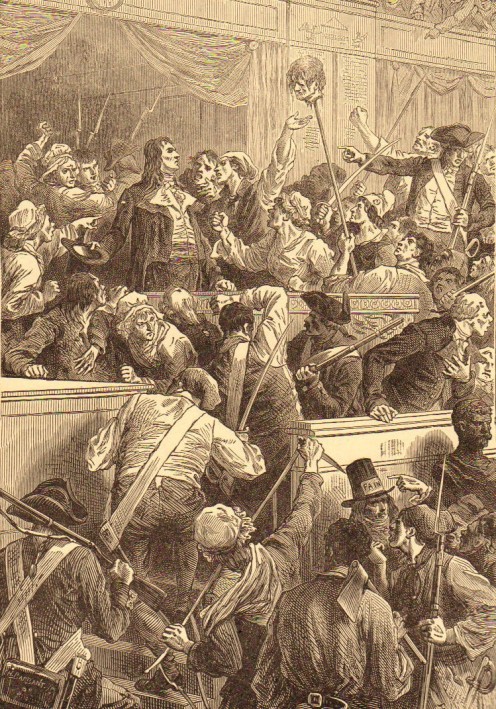
The Other Owners of America's Land
Then, comes the reality of who or what private entities own land in the United States.
Well, no big secret that the 1% of the richest of the rich *(the top ten private individual land owners), own another over 10.6 million acres. Small potatoes compared to the government holdings. Nor, is it a secret, that Ted Turner owns the most land of all individuals in the United States.
Add to all this mix is the fact that 10% of all property in the United States is owned by foreigners living outside this country. I'm are talking about investors who own some of our best and most historic treasured and valuable land.
I'm talking about individual investors who fueled our real estate boom before the bust and drove the prices up on personal real estate.
Can't blame them, we were the ones, who unlike most countries in the world -- put a for-sale sign on our land. We apparently don't care as long, as they have the money.
Note: I was unable to unearth any belivable figures on land owned by the large churches, or land owned by foreign governments, or businesses.
Sinking Into Imbecility - The Encylopaedists to the Rescue!
When life was running amok in France, people were no doubt feeling and expressing the same concerns we are today -- as we battle our way back from a recession, and the secret warfare of what to do about monumental problems, like health care for the masses.
As things deteriorated, some of the greatest thinkers of the times before the French Revolution, rushed in and tried in vain to solve France's problems. They were called the Encyclopaedists.
By the time I got to the quote:
These encyclopaedists were surrounded by only the best and the brightest authors and philosophers of the time. Men such as:
- Jean le Rond d'Alembert
- Denis Diderot
- Voltaire
- Rousseau
- Turgot
- Helvetisu
- Duclos
- Condillac
- Mably
- Buffon
- La Harpe
- Marmontel
- Rayna
- Morellet
- Grimm
- Saint-Lambert
"While the State of France sank into imbecility, the mind rose and stood."
I was intrigued by the possibility, that the United States might be in some ways, repeating history. Only, I found myself wondering: "Where are today's Encyclopaedists? Could some of them be lurking unknown on Hubpages?" :)
Well getting back to the book, the nobility in France and government officials of the time adopted a motto and saying back then:
"After us, the deluge."
Meaning, that it seemed perfectly normal to them that people (of affluence, not the worker bees) were to pursue eating, drinking, laughing, putting on airs, be luxurious, and die -- After all, tomorrow might bring a flood or some other natural disaster in which everyone might die -- might as well not think of tomorrow.
Another way of saying this is: "After us, the flood." This "me first" attitude got them a French Revolution, and it's part of what we've done to ourselves and our own country. They didn't see the handwriting on the palace walls, long before there was a facebook wall.
I'm not surprised by that. Nor, am I surprised by the current sad state-of-affairs we find our own country in. It's been coming for a long time and we let it happen.
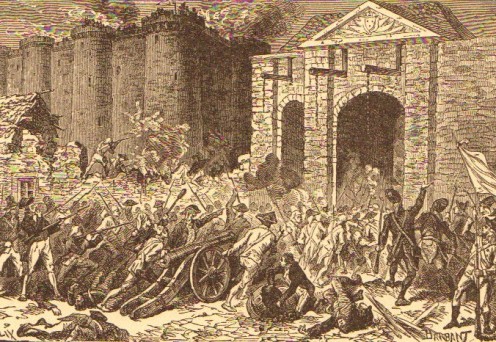
On the Way Back to the Castle
So my reading time is up, when the twelve year old gets in the car, lugging her books that weigh almost as much as she does.
"Gramma, you read too much. Why are you reading that old book? It's probably older than you."
"I'm trying to understand who owns the land." I laughingly reply.
"It belongs to the whole country. I know that and I'm just in the seventh grade, says our own Miss-Know-It-All.
"That's not what I heard," as I brace myself for her idea of music on the radio, knowing that is a not-so-silent signal that she is off in her own tween-aged world. She has more important things on her mind than the musings of an old lady.
Pulling back out into the traffic, my mind flashes back to being a child and asking my own Grama Daisy:
"Who owns America? The teacher says we do, that's what "we the people means."
She looked over her sewing machine, "Man never owns the land, he only pretends to . . . . the land owns us. Be a good steward of it."
Well, I'll leave it up to all you -- with keener minds and the love of debate to solve the problems that seem unsolvable. I'll go back into my safe corner in writing about what I know best -- teaching others about being a well educated good stewards of the land that owns us, while I play that old country song she used to listen to, My Own Native Land, sung by Marty Robbins.
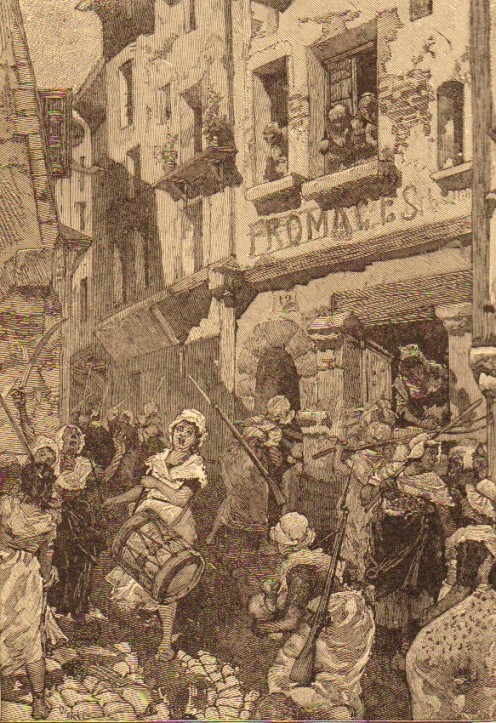

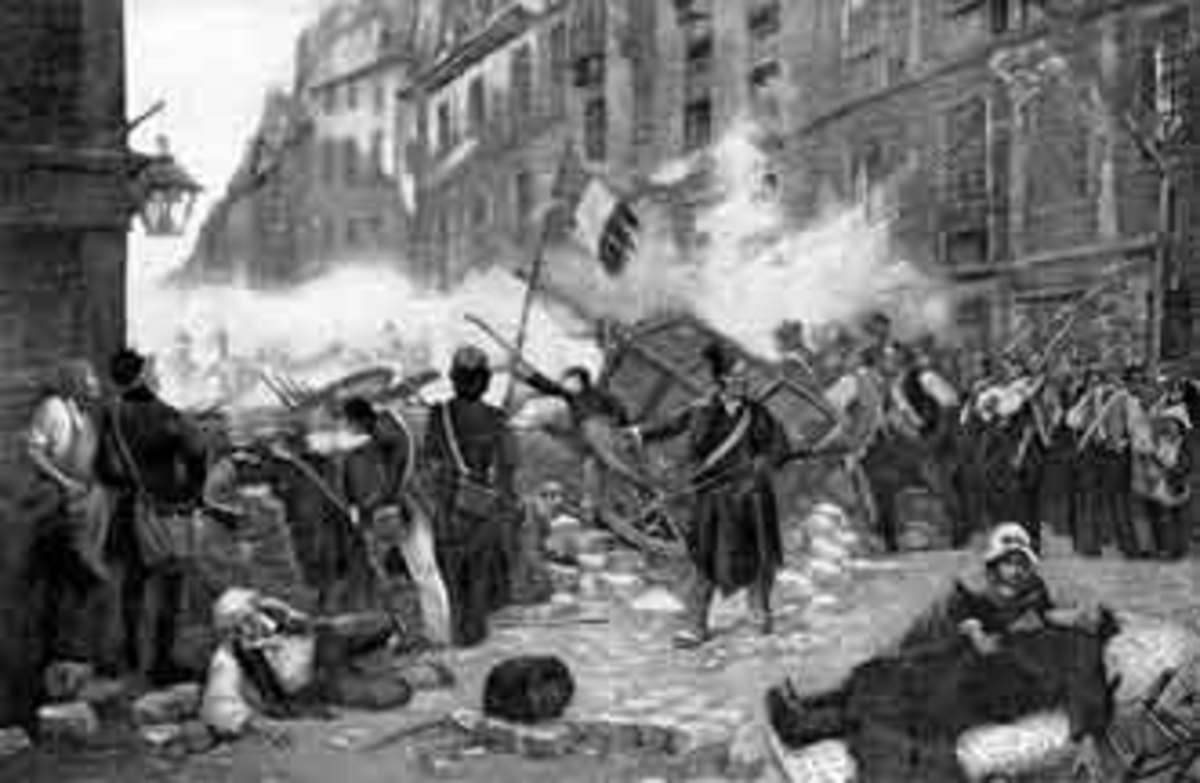

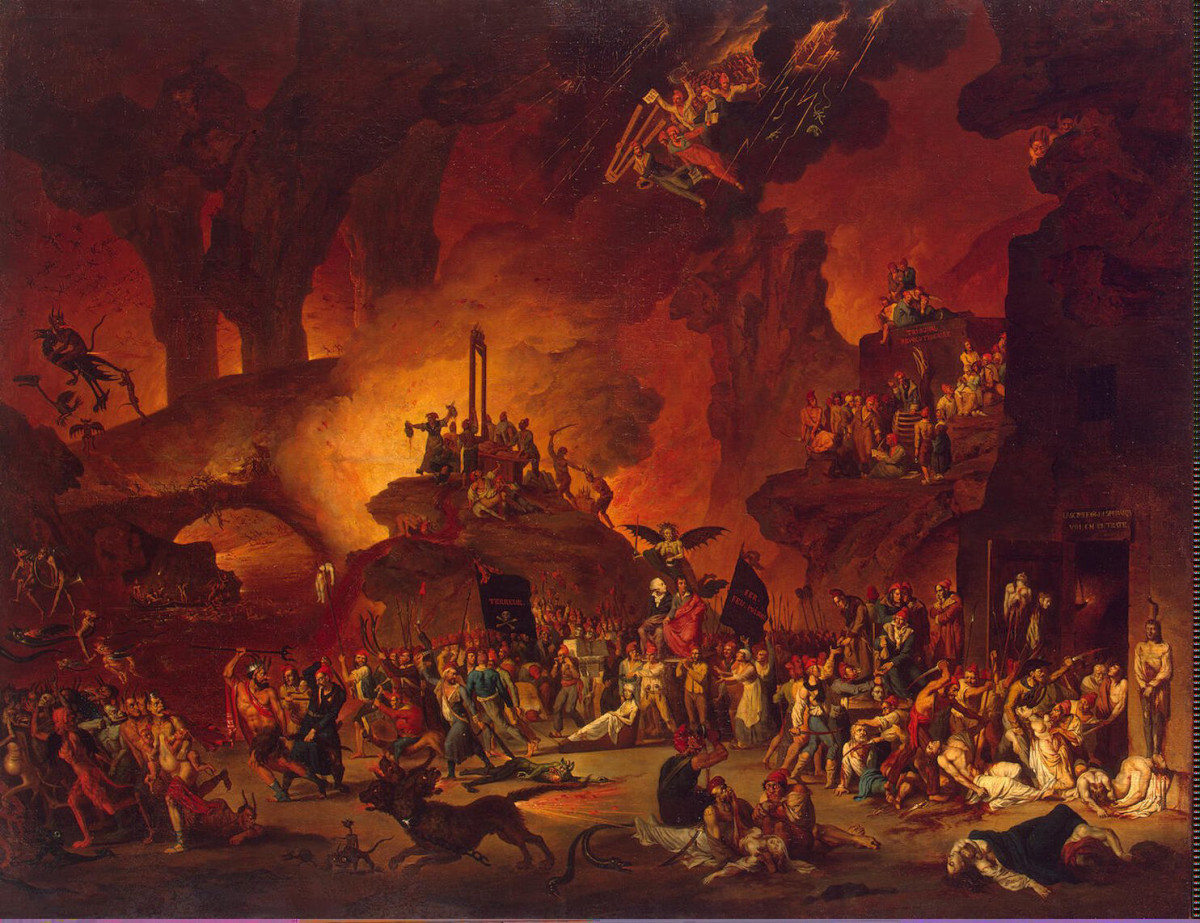
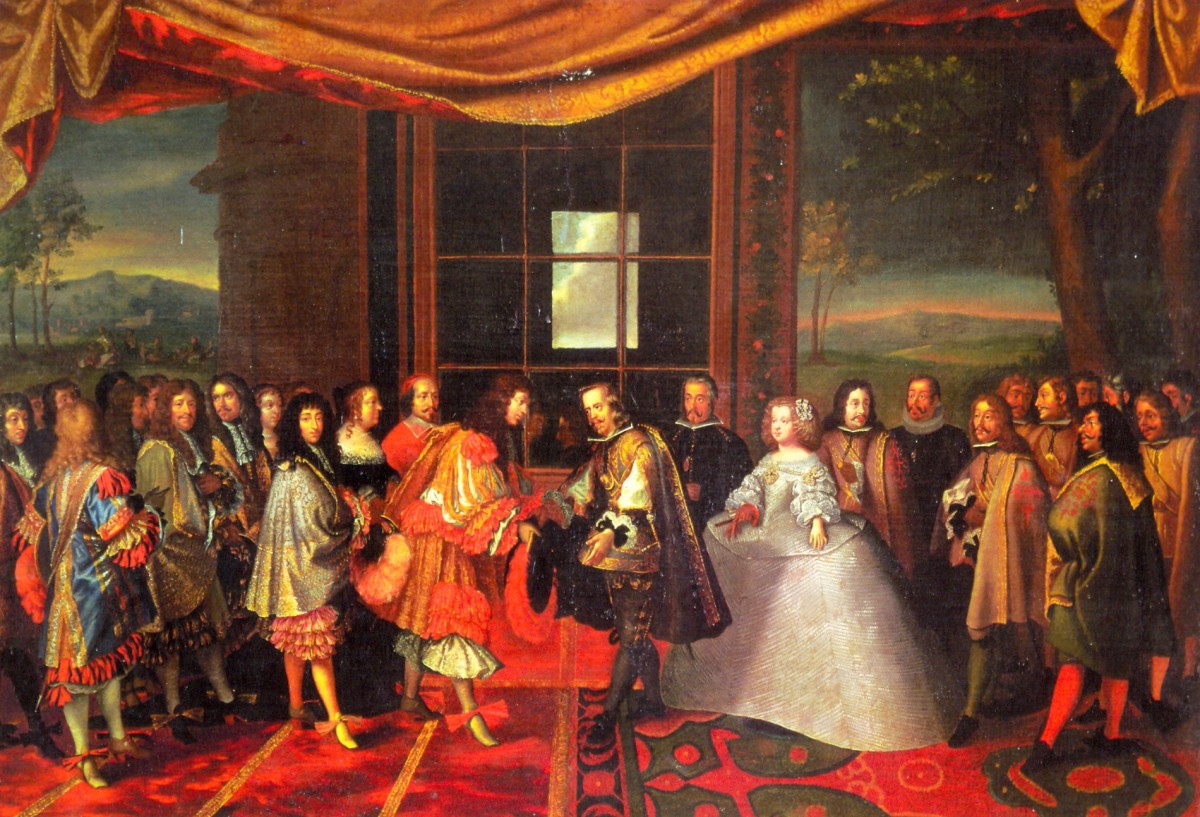

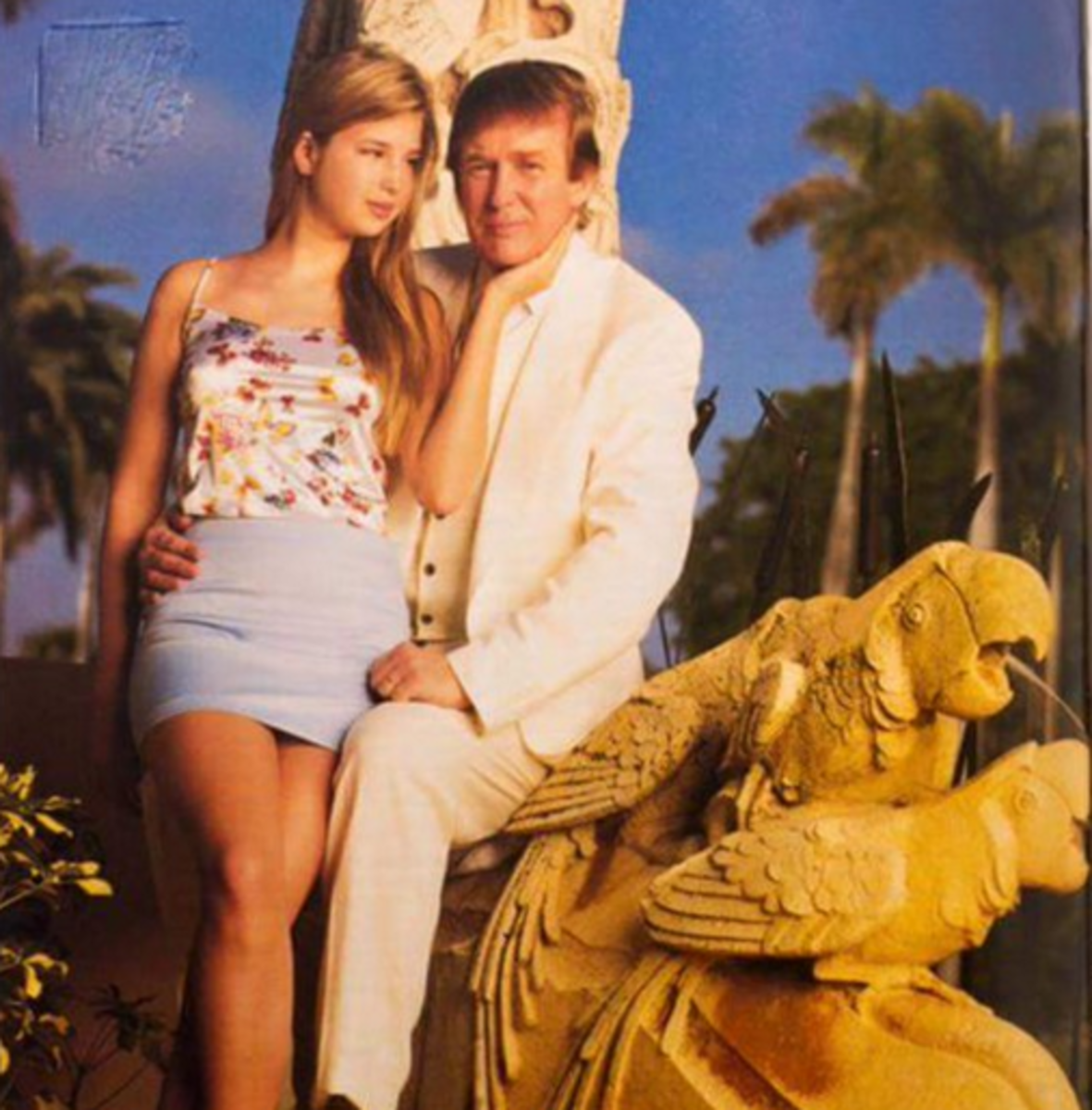

![American Politics: The BIG LIE in Politics, From The Republican Presidential Convention [124] American Politics: The BIG LIE in Politics, From The Republican Presidential Convention [124]](https://images.saymedia-content.com/.image/t_share/MTc2NDYyMjI1MzEyNjU1MzIy/the-big-lie-in-politics-from-the-conservative-side.jpg)